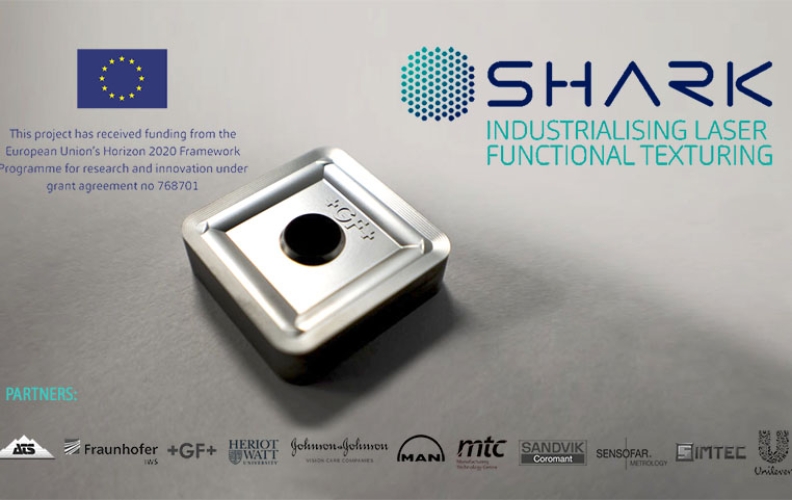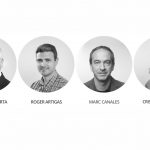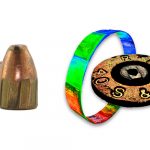
New partnership to drive industrialisation of laser functional texturing
Sensofar Metrology has been partnering with the SHARK project since 2017. The SHARK project aims to industrialise laser functional texturing by boosting the productivity, cost effectiveness and flexibility of the process.
A group of 11 research organisations and market leading companies from across Europe have teamed up to increase the industrial uptake of laser functional texturing and unlock the benefits of the technology for european manufacturers.
A form of surface engineering, laser functional texturing is a key enabling technology that is relevant to almost every industrial sector, with applications ranging from anti-icing/self-cleaning surfaces to wear reduction and biocompatibility enhancement. It can offer significant benefits to manufacturers, such as cost savings, improved product performance and faster product development. However, the process is viewed by many as complex and costly, and there can be a lot of trial and error involved in getting the desired surface texture.
The SHARK project will address these challenges by industrialising laser functional texturing through a holistic approach, to boost the productivity, cost effectiveness and flexibility of the process, and ultimately build confidence in the process as a viable option for enhancing product performance, quality and reliability.
Supported by funding through the European Union’s Horizon 2020 Framework Programme for research and innovation, the project consortium will develop a fully integrated system that reduces production time with a ‘right first time’ approach through modelling of the process and in-situ inspection. The platform allows end users to test run the functionality obtained through laser surface texturing on their components, which significantly reduces risk and cost.
The project will also reduce the amount of component testing required through the establishment of a knowledge data management system and modelling software, and will provide a cost model analysis for implementing laser surface texturing in specific application areas.
Dr Mohammad Antar, technology manager for non-conventional machining at the Manfuacturing Technology Centre said, “Despite its significant potential for boosting the performance of products and components, laser surface engineering, functional texturing in particular, has mostly struggled to cross from laboratory based validation into a fully industrialised solution. SHARK’s approach, supported by the vast and diverse expertise of the consortium members and the rise of Industry 4.0 tools and concepts will turn this into a reality. The outcomes of the project will be a game-changer, not just for the partners involved, but to the wider manufacturing community in Europe and globally.”
Laser texturing has a wide range of applications in sectors as diverse as aerospace, medical, food and drink, power generation and tooling. The SHARK project is focusing on specific end use applications including anti-icing for ice cream production lines and controlled friction for high-friction discs.
The consortium consists of world class research organisations: Fraunhofer IWS (Germany), Heriot-Watt University (UK) and the Manufacturing Technology Centre (UK). Bringing their technology expertise are: ATS (UK), GF Machining Solutions (Switzerland), Sensofar (Spain), SIMTEC (France). End users providing application case studies in the power generation, medical, tooling and food and drink sectors are MAN Diesel & Turbo (Denmark), Johnson & Johnson (Ireland), Sandvik Coromant (Sweden) and Unilever (UK).
The project runs for three years, concluding in August 2020. For more information please visit www.sharkproject.eu
About the SHARK project
SHARK is working to increase the industrial uptake of laser functional texturing.
We are reducing the complexity and unknowns in the functional texturing process by developing a fully digitised knowledge management platform and an advanced end-user interface to enable industrialisation of the process.
The project will deliver:
Cost savings: The capability to deliver surface functionalities into real products for less than 10% of the cost of the conventional part.
Improved product performance: More than 20% improvement in product performance based on the surface functionalities deployed
Faster product development
A strengthened global position for European manufacturing
The SHARK project is supported by funding from the European Union’s Horizon 2020 Framework Programme for research and innovation under grant agreement no 768701.









